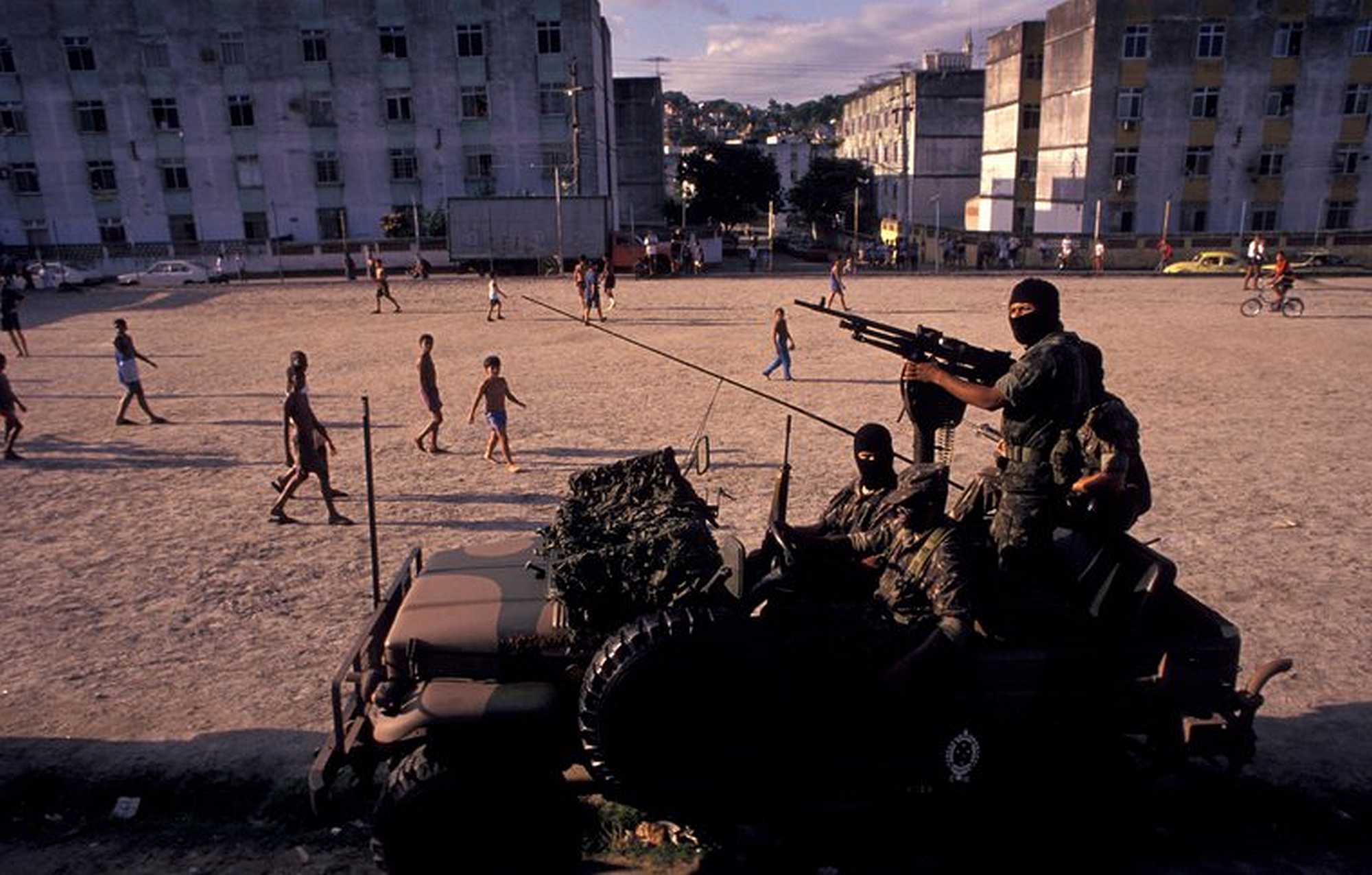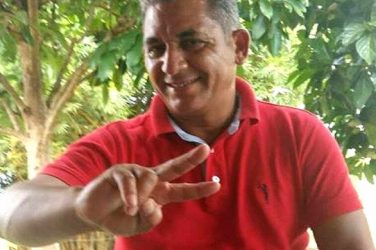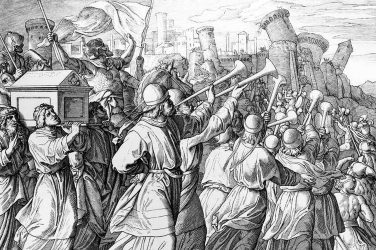Israeli flags fly from the highest spots of the hills surrounding the Cidade Alta favela in the North Zone of Rio de Janeiro. Checkpoints, raised to prevent the entry of police and rival groups, display the Star of David to warn passers-by whose territory they are entering.
In a bunker used by drug traffickers, police find ammunition for anti-aircraft machine guns, ballistic vests and a copy of the Torah, the holy book of Judaism.
In the shadow of the Covid-19 pandemic, criminal groups have taken control of five favelas in Rio’s outskirts, establishing what they call the Israel Complex (Complexo do Israel). Drug traffickers and paramilitaries, historic rivals in the dispute for territorial control, have joined forces to advance their illegal business.
The Israel Complex is led by Álvaro Rosa, a drug lord who goes under the nickname Aaron – the biblical brother of Moses – in alliance with former police officers linked to the paramilitary group Crime Bureau (Escritório do Crime), a well-known death squad held responsible for several crimes, including the murder of councilwoman Marielle Franco in 2018.
Today, the group exercises control over at least 130,000 people. Residents of the region say they have lost their freedom of movement and of worship. The Israel Complex has destroyed Afro-Brazilian Candomblé temples and expelled the pais and mães de santo, Candomblé priests, from its territory. White clothing, usually associated with practitioners of Afro-Brazilian religions, is now forbidden.
The establishment of the Israel Complex marks a new phenomenon, even for crisis-prone Rio de Janeiro: the unification of drug trafficking factions, paramilitary forces, and neo-Pentecostal churches, waging a “holy war” not only against competing criminal groups, but also against Afro-Brazilian religions.
Drug Trafficking and Afro-Brazilian Religions
Characterized by state abandonment and chronic poverty, Rio’s favelas and urban outskirts have been home to armed groups, which make the largest share of their income through drug trafficking, since the 1980s. Controlling over 50% of the city’s most violent areas in 2005, the Comando Vermelho has long been the most powerful drug trafficking group in Rio de Janeiro.
During the 1980s and 1990s, drug traffickers identified mainly with Afro-Brazilian religions, such as Umbanda and Candomblé, whose places of worship were widely available in their occupied territories. Traffickers often expressed their religiosity through the construction of altars and murals devoted to their Afro-Brazilian gods and goddesses.
In the 1980s, police began launching operations in the favelas occupied by drug trafficking groups. Given the well-established connection between drug traffic and Afro-Brazilian religion, many police operations were accompanied by symbolic conversion, substituting Afro-Brazilian religious symbols and places of worship with evangelical Christian expressions of faith.
Evangelical churches have significantly expanded their influence since the end of the 1990s, forming religious networks that wage a “war against evil”, with their roots in the urban peripheries. Between 2000 and 2010 alone, the number of evangelicals in Brazil increased by more than 60%.
The Birth of Narco-Pentecostalism
Since the 1980s, evangelical churches have increasingly expanded their missionary activities to prisons and other correctional facilities. Today, a significant number of prison inmates are converted to neo-Pentecostalism.
Prisons have always represented a key space for the formation of drug trafficking networks. Indeed, all major drug trafficking factions, such as the Comando Vermelho, the Terceiro Comando and the Primeiro Comando da Capital, were founded in prisons.
Occasionally, the widespread evangelical presence in prisons has resulted in the conversion of drug traffickers. This was especially the case among the Terceiro Comando Puro, the main rival of the Comando Vermelho. While serving sentences in state prisons, several bosses reportedly converted to neo-Pentecostalism.
Not long afterwards, the first-known narco-Pentecostal group was founded as a subfaction of the Terceiro Comando Puro: the Soldiers of Jesus (Bonde de Jesus). Besides controlling drug traffic in the Parque Paulista neighborhood in the State of Rio de Janeiro, the Soldiers of Jesus attacked and vandalized several Candomblé and Umbanda temples and expelled the priests from their territories.
Since then, the persecution of Afro-Brazilian religions, as well as Catholic priests, has been reported in several favelas dominated by the Terceiro Comando Puro.
New Alliances
Another important player in Rio de Janeiro’s power struggle are the so-called “militias”. Since the military dictatorship of 1964-1985, the hit squads formed by paramilitary and parapolice corps have taken control of entire neighborhoods.
Often compared to the Italian mafia, the militias derive their main income from the “management of violence” in the territories under their control, coercing the local population into the payment of protection fees for their homes or businesses. In some neighborhoods, militia groups also control other infrastructural branches, such as gas distribution, cable TV and forms of public transport.
Last year, at least 57% of Rio de Janeiro was dominated by the militias, putting 5.7 million of the city’s residents at the mercy of paramilitary groups
High-ranking state representatives have openly supported militia groups, believing them to be a key ally against drug traffickers. Rio’s current mayor Eduardo Paes, for instance, has previously declared that “self-defense forces” formed by police officers and firefighters have effectively confronted drug traffickers and brought peace to certain neighborhoods.
Regular police forces often perceive the militias as an extension of their own institutions, as they are to a large extent made up of retired police officers and soldiers.
This reputation has been challenged by the revelation of associations between militia groups and traffickers belonging to the Terceiro Comando Puro. In order to strengthen their position against their common enemy Comando Vermelho, the criminal groups have launched a new joint-venture: in the newly conquered territories, the Terceiro Comando Puro is responsible for drugs traffic, while the militia continues to manage and charge for cable TV and gas.
Evangelical churches, on their behalf, provide the ideological justification for the war against the supposedly devilish Comando Vermelho. They have also been used for money laundering. As churches are exempted from tax payments, illegal funds are easily channeled through them, making it impossible to track the origin of the money.
The Neo-Pentecostal Narco-Militia
Despite the high-risk approach, the triple alliance between the traffickers of the Terceiro Comando Puro, militia groups and evangelical churches seems to be working well.
In January this year, the Israel Complex expanded its territory into other neighborhoods in Rio de Janeiro, at the invitation of the local drug traffickers themselves. Rio’s Civil Police is also investigating a suspected arrangement with criminals from other locations.
Beyond the Israel Complex, the power of the joint venture is rising: The Terceiro Comando Puro was able to expand its territory significantly, conquering important Comando Vermelho strongholds in the city.
Yet the biggest winner, perhaps, might be the militia. Last year, at least 57% of the area of the city of Rio de Janeiro was dominated by the militia, putting 5.7 million of the city’s residents at the mercy of paramilitary groups.
Authorities are not innocent of these developments. Territories controlled by the militias are seldom targeted by police operations: since 2018, only 3% of the police and military operations have been launched into territories occupied by the militias.
Despite some occasional arrests, these highly lucrative and professional criminal organizations cannot be seriously confronted without targeting their underlying political structures and sources of funding.
This includes reviewing policy for transport and the distribution of gas and cable TV – the militias’ main sources of income – as well the current drug legislation and taxation schemes for churches.
While this might seem like a difficult discussion to have, the price currently paid by populations taken hostage by the neo-Pentecostal narco-militia is much higher. The terror spread by the armed groups is accompanied by the loss of religious freedom and the persecution of Afro-Brazilian religions and their practitioners.
Kristina Hinz is a researcher, lecturer, political analyst and independent consultant, specialized in public security, gender-based violence, law enforcement violence, and gun control, with experience in Latin America and the Middle East. Currently, she is working as a researcher at the Center for Studies on Inequalities and Gender Relations (NUDERG), State University of Rio de Janeiro (UERJ), and writing her Ph.D. dissertation at the Free University of Berlin. She can be found on Twitter @KristinaHinz_
Doriam Borges is adjunct professor in the Department of Social Sciences and a collaborating professor in the Graduate Program in Social Sciences (PPCIS) of the State University of Rio de Janeiro (UERJ). He is also a researcher at the Laboratory of Violence Analysis (LAV-UERJ) and coordinator of the UERJ extension project QUANTIDADOS: Research and Data Analysis. He is the author of the book ‘The Fear of Crime in the City of Rio de Janeiro: An Analysis from the Perspective of Beliefs of Danger’
Aline Beatriz Coutinho is an associate researcher at Lab on Social Differences and Inequality and a Master’s student in History, both at the Universidade do Estado do Rio de Janeiro (UERJ), where she researches Reproductive Rights, political disputes over abortion’s issues, and gender
Thiago Cury Andries is a Brazilian journalist, filmmaker, curator and educator, working in the fields of human rights, urban violence, and youth culture. He can be found on Twitter @ThiagoAndries
This article appeared originally in Open Democracy – https://www.opendemocracy.net/






